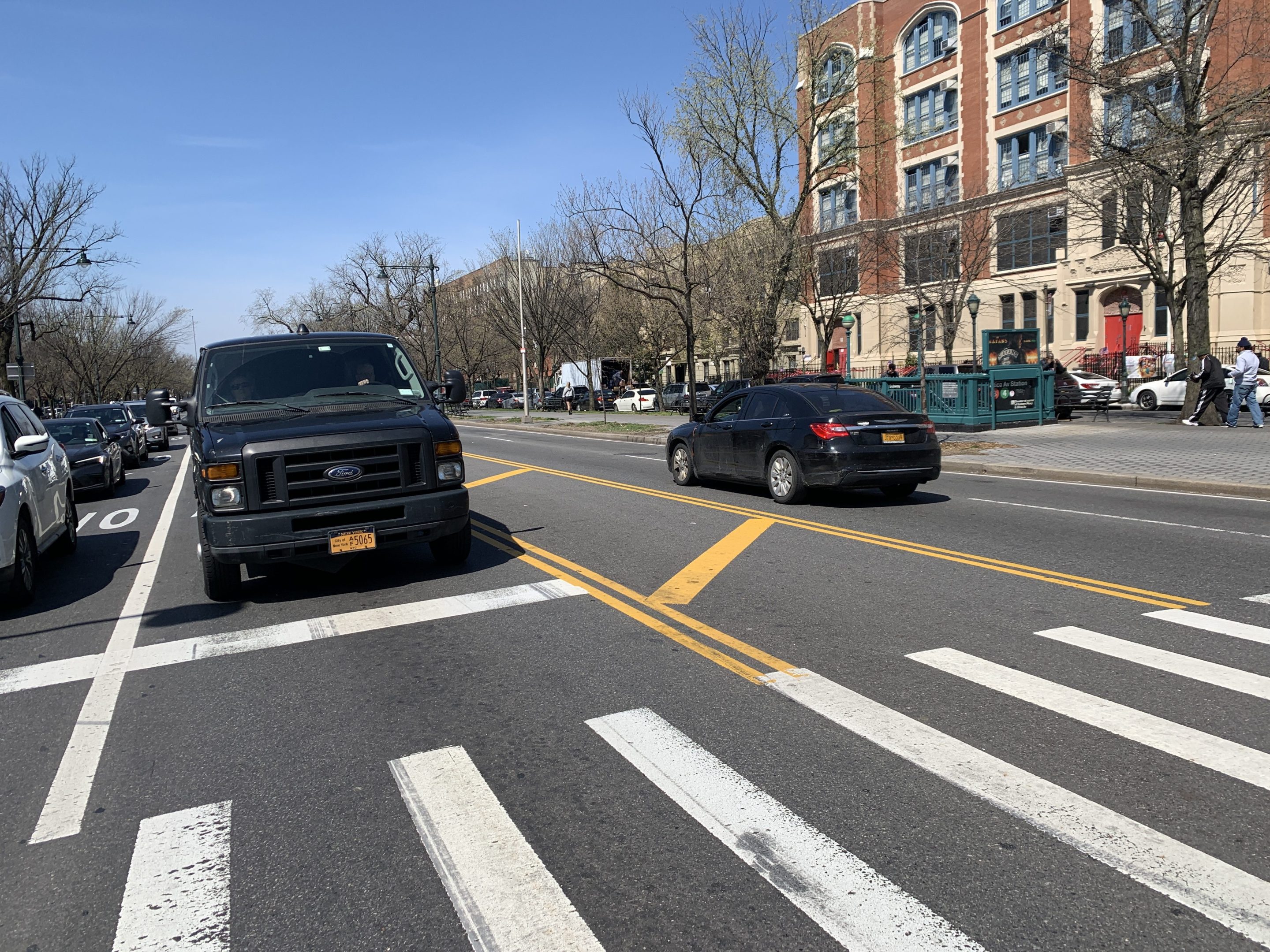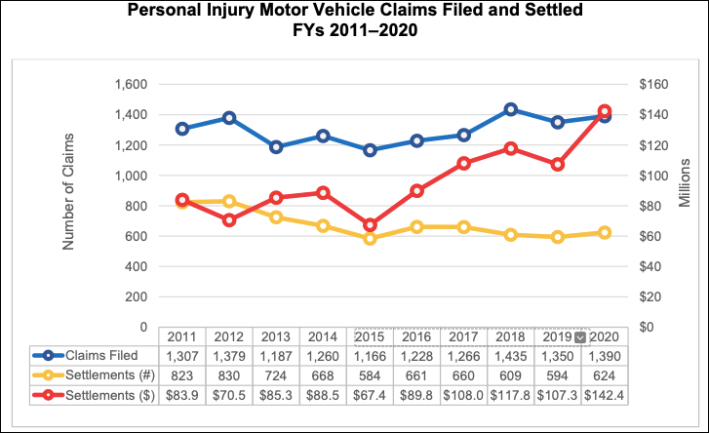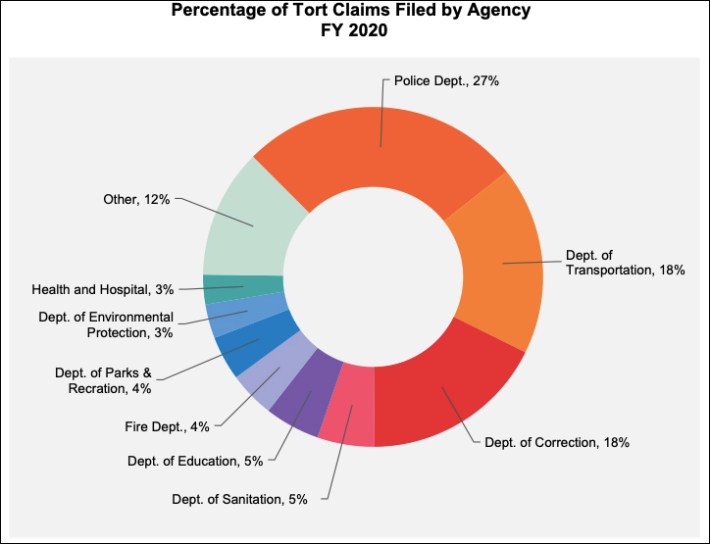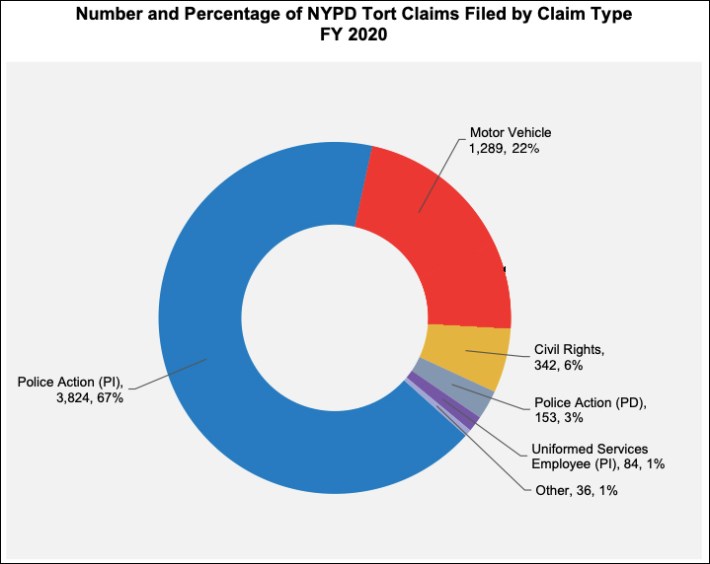The police officer who was driving the NYPD vehicle that fatally struck a man on Eastern Parkway last week after allegedly speeding and running a red light has been placed on modified duty — and the Internal Affairs Bureau has taken over the case, Streetsblog has learned.
In addition, the state Attorney General has opened a review.
The NYPD would not provide any details of the crash that killed Ronald Smith, 53, on April 7, nor would the agency give the name of the officer, or any information about what "modified" duty means. Experts say it means that he has been placed on desk duty and may have surrendered his gun and shield.
#BREAKING : Confirming that the name of the Black male community member who was struck and killed by a #NYPD van on 4/7/22 in #CrownHeights is named #RonaldAnthonySmith . follow: @equality4flatbush @justicecommittee @changethenypd & @bkmovement for updates #BlackLivesMatter pic.twitter.com/QA7nOBMXmh
— EqualityforFlatbush (@EqualFlatbush) April 14, 2022
"The investigation remains ongoing by both Force Investigation Division and Collision Investigation Squad," a police spokesperson said. "The officer is modified."
Meanwhile, Attorney General Letitia James has opened an investigation, which is standard in any case where police are involved in a civilian death under state executive law, Section 70-b. The AG's Office of Special Investigation is required to assess every time a law enforcement official "may have caused the death of a person, by an act or omission." The office's initial assessment may lead to a full state investigation, the attorney general's office said in a statement.
Police have declined to answer questions about the suspicious crash, even after a witness claimed that the police van was speeding as it rushed to get through the intersection of Eastern Parkway and Schenectady Avenue at around 8 p.m. Damage to the vehicle suggests a high-speed crash.
The police claimed that Smith was "standing within the center median of Eastern Parkway," but would not say how the officer struck him if he was, indeed, not in the travel lanes of the roadway.
A relative of the victim reached out to Streetsblog after other media outlets called Smith homeless.
"I am this man's sister," said J. Floyd. "He has family, and he is loved."
No one was present at the last known address for Smith, which is a flophouse in Ozone Park, Queens. (No one was home when Streetsblog visited, nor has anyone responded to a note left on the door.)
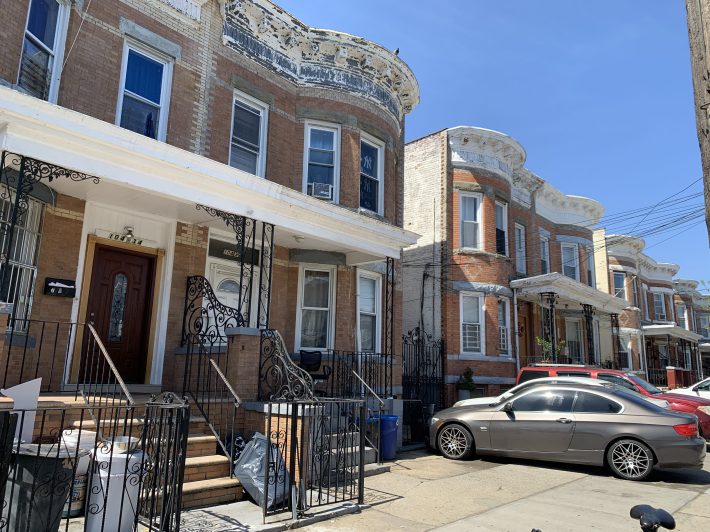
It is common for the NYPD to provide almost no details — or to give out erroneous information — about crashes involving police officers, and truths often only come out in the event of a lawsuit by victims' families. When Ryo Oyamada was run over by a speeding cop in 2017, police initially claimed the driver had his flashing lights on and was not speeding; evidence later showed that the lights were off and the officer had been speeding.
"The IAB swoops in whenever a cop kills someone," said Steve Vaccaro, the Oyamada family lawyer. "Their job is to protect the agency."
Council Member Crystal Hudson had issued a blistering statement that demanded that the officer in question be terminated, not modified. A spokesman for the lawmaker said she has not received any response from the NYPD.
When you really drill down into the hundreds of millions of dollars in settlements that the city pays out to victims, you really start to see the damage done by city workers using city fleet vehicles — specifically workers in NYPD uniforms. First, motor vehicle settlements comprise the largest share (67 percent) of city payouts:
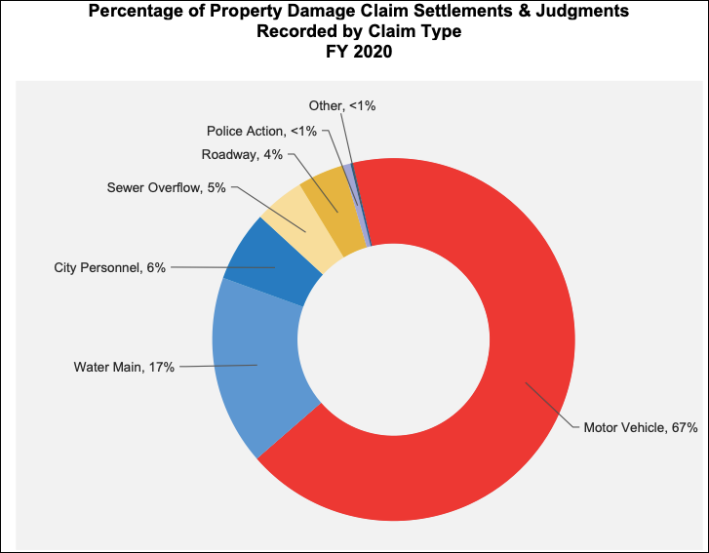
Those payouts add up to a lot of money, roughly $142 million in 2020:
The NYPD is particularly expensive for the city:
And here's how the NYPD's settlements break down. Obviously, police brutality is far more costly to the city, but vehicles are a notable second:
